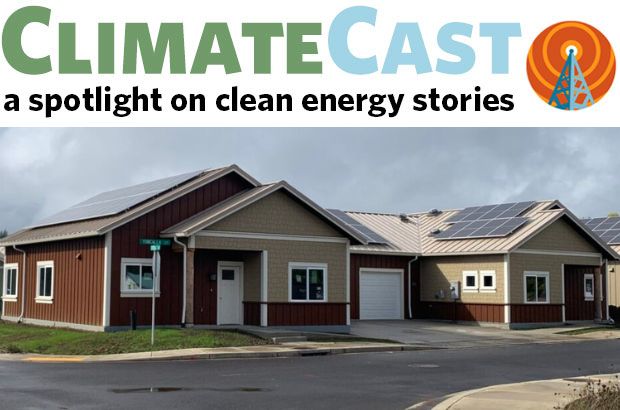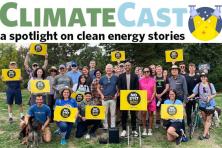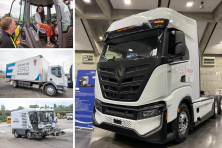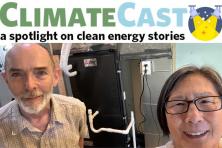Each month, ClimateCast features aStory Spotlight, covering climate issues and clean energy solutions that prioritize human experiences and connections in communities across the Pacific Northwest.
Grand Ronde, Oregon — population 2,010 — is a rural community about 30 miles northwest of Salem. It sits on a plateau roughly halfway between the Willamette Valley floor and the Oregon coast. Much of the Grand Ronde Indian Reservation is located in and around Grand Ronde, including Spirit Mountain Casino and the headquarters of the Confederated Tribes of the Grand Ronde Community of Oregon. It’s a particularly beautiful slice of the northern Oregon coast range. But did you know it also has some of the most advanced, energy-efficient homes in the state? 🏡👀
The Confederated Tribes of the Grand Ronde just built 24 affordable single-family homes for their tribal elders. These special residences were built with state-of-the-art energy efficiency measures, including electric appliances, rooftop solar panels, energy storage batteries, EV chargers, electric heat pumps for comfortable space heating and cooling, and special water heaters (also using heat pump technology), among other innovations.
All these innovations translate to:
🫁 cleaner, pollution-free air
💰 lower energy bills for residents
✨ resilience to wildfire smoke & power outages
💹 higher property values
That’s just one story among plenty of news coverage touting the benefits of electric heat pumps (even in sub-zero temperatures!) and other energy efficiency upgrades for homeowners. After all, replacing a home’s HVAC system and installing other energy efficiency upgrades are relatively straightforward when you own your home. Yet while part of the story is how all sorts of tenants (including tribal elders) can benefit, it’s key to note renters are often left out of the stories as they usually don’t get a say in how their homes are heated, cooled, and powered.
We’ve previously covered how many homes and other buildings — depending on how they're powered, heated, and cooled — consume massive amounts of energy and release toxic and climate-harming air pollution, the same air we breathe. People living in apartments and other multifamily dwellings are not immune to these issues. In some cases, the more confined spaces can actually worsen the already negative health effects of burning gas and other fossil fuels indoors.
This is one reason we must ensure clean energy tech is affordable, accessible, and desirable to renters and people of all income levels. A growing number of states are enacting electric heat pump adoption goals, but existing incentive programs are largely focused on supporting homeowners, not renters.
Those experiencing the worst air quality and climate impacts are disproportionately low-income and Black, Indigenous, and people of color (and members of these communities are more likely to rent their homes).
The federal Inflation Reduction Act (IRA) already provides rebates for portable electric heat pumps for which renters are eligible, and the Portland Clean Energy Fund (PCEF) has provided hundreds of electric heat pumps and high-efficiency air conditioners to vulnerable residents. Washington State’s Climate Commitment Act (CCA) includes similar provisions that will become available in the near future.
Still, updated building codes and additional incentive programs are needed to ensure home builders, property owners, and policymakers have the tools to bring electric heat pumps’ benefits of clean air, lower energy bills, and improved community resilience to renters.





